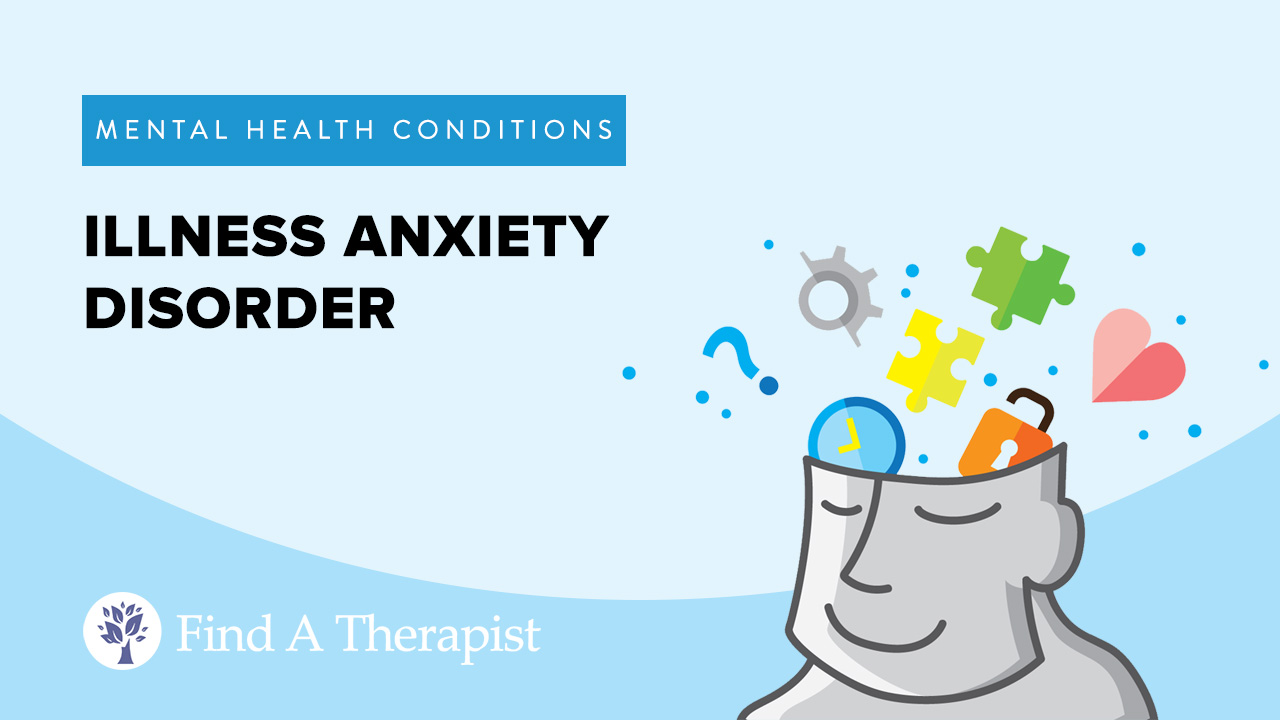Am I A Hypochondriac?
Published on July 28th, 2021
Updated on January 2nd, 2024

Dealing with hypochondria is challenging. It affects many different aspects of a person’s life and can be debilitating at times. People with hypochondria struggle to feel like they fit in. They are often misunderstood and dismissed. This causes them to feel alone in their struggles.
Hypochondria and Illness Anxiety
Hypochondria is a term that has recently been replaced with illness anxiety disorder. Illness anxiety disorder is a condition in which a person has an intense fear of becoming ill. The official diagnosis for hypochondria is illness anxiety. Both terms refer to the same condition.
People with hypochondria or illness anxiety will mistake normal bodily sensations for symptoms. It causes an intense fear of becoming ill. This leads to a person convincing themselves that they are chronically unwell.
Sponsored by

Choose a therapist to work with and start healing with 20% off from BetterHelp.
Click HereWhat a Hypochondriac Experiences
Illness anxiety causes people to believe they are ill, even when there is no evidence of illness. Normal bodily changes or minor conditions are mistaken for life-threatening issues.
Affected people will often seek medical attention for their symptoms. They attend doctor appointments convinced that something is wrong with them, even when told they are healthy.
People with illness anxiety often become untrusting and resentful toward doctors. This is due to being repeatedly told that there is nothing medically wrong with them. Affected people believe that they are suffering from a medical emergency.
Hearing from a doctor that they are fine is confusing. This confusion causes frustration and distrust. As a result, they may develop a habit of avoiding doctors and medical offices.

Symptoms Of Illness Anxiety
Symptoms of illness anxiety are more intense than just worrying. It is more than a person allowing their imagination to get carried away or seeking attention. A person with illness anxiety truly believes that they are ill. They may also be resistant or dismissive of the idea of having illness anxiety.
Knowing the symptoms helps to identify and treat illness anxiety. Symptoms of illness anxiety include:
- Mistaking anxiety symptoms for medical distress (racing heartbeat, sweating, muscle tension, etc.)
- Constant checking and evaluating areas of the body
- Seeking potential symptoms of medical illness
- Distress in reaction to harmless body abnormalities (runny nose, rash, body aches, etc.)
- Pre-occupation with the functioning of specific organs or bodily systems
- Obsession or hyper-attention on specific diseases
- Constant worrying about health
- Affected relationships
- Frequent doctor visits
- Web searching perceived symptoms and symptoms of illnesses
- Growing distrust and avoidance of doctors
- Feeling frustrated or more anxious with negative lab results
Causes Of Illness Anxiety Disorder
Illness anxiety may be caused by many factors. It is a condition that can be learned through modeling, genetics, or trauma.
Everyone’s reason for developing illness anxiety is different. Despite the difference, there are common factors that contribute to the condition. The following are common causes of illness anxiety:
History of trauma, abuse, or neglect. Children who experienced abuse are at risk of developing illness anxiety. This is also the case for children who were neglected in some way. Adults who have experienced trauma may also be at risk of developing illness anxiety.
Modeling from a parent or family member. People with illness anxiety often have family members with it as well. The behaviors and anxieties can be learned by children through modeling. Modeling is when adults model behaviors that children mimic and internalize. Typically, the modeling occurs the most with close family members (siblings or parents).
Pre-existing condition of anxiety. A pre-existing condition of anxiety is often in cases of illness anxiety. Illness anxiety is an anxiety disorder. It can co-occur with other forms of anxiety and mental health issues.
History of Illness. People with illness anxiety may have suffered from illness in the past. They may have also had a family member who suffered from chronic illness. Each experience can create fear and anxiety about developing a medical issue.
Treatment For Illness Anxiety Disorder
Illness anxiety disorder is treatable. It can be challenging to treat at first because affected people believe they are ill. If left untreated, the condition can worsen. It can also lead to other issues, like depression or other mental health disorders.
In some cases, medication may be prescribed, but the primary treatment is therapy. A person with illness anxiety needs to speak with a therapist.
A therapist can provide information about the condition. They can also provide a safe space for an affected person to confront their beliefs and fears. In such a space, they can come to terms with their diagnosis of illness anxiety disorder.
Therapy is important for a person with illness anxiety. A person with illness anxiety often begins to not be taken seriously by their doctor. This can impact the doctor-patient relationship. It can also prevent a person from getting proper care when experiencing a real medical issue.
Cognitive-behavioral therapy (CBT) is often used to treat illness anxiety. It helps the affected person confront their anxiety constructively.
CBT teaches the client how to challenge anxious thoughts. The client is then able to think logically. They learn to identify if the worry is coming from anxiety or a real medical condition.
Sponsored by

Find an affordable therapist online with 20% off from BetterHelp.
Click Here






Leave A Reply